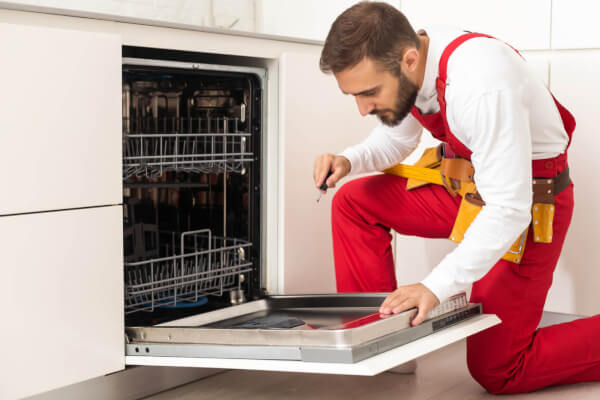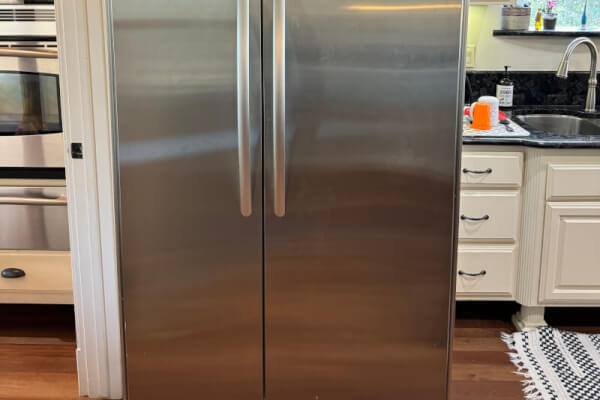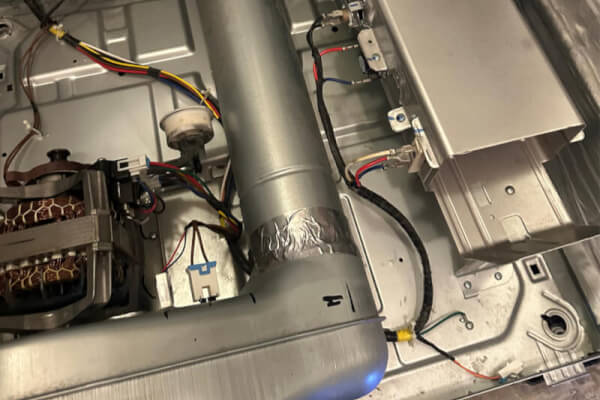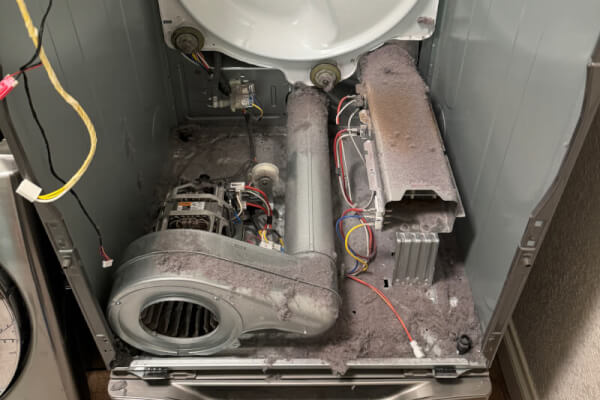How to Remove Bad Smells from Your Washing Machine
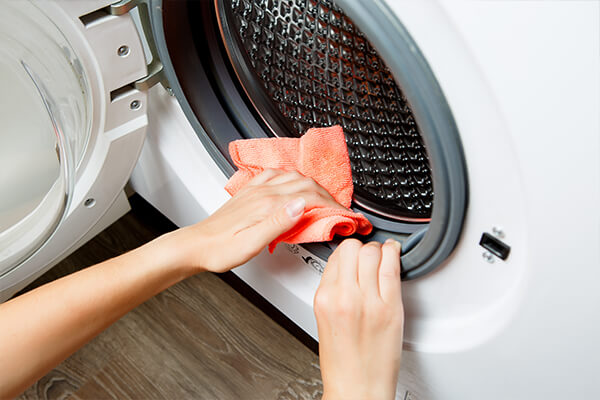
Washing machine smells can happen for a variety of reasons, but they all have one thing in common. You need to get rid of the offensive odors quickly to protect your laundry and your home from more problems. This problem can come from a variety of sources and therefore have multiple solutions to get things fresh and clean again.
When you find yourself saying, “My washer smells!” these steps will help you solve the problem. For many, the best option is to call in the professionals at Excellence Appliance Repair. Contact us right away to make an appointment.
Top Causes of Washing Machine Smells
The washer in your home handles a lot of dirty clothing, towels, sheets, and other items. These come with a lot of smells of their own, which can transfer to the machine over time. However, body oil, sweat, food stains, and similar things are not the primary reasons for washing machine stinks. Soap scum or detergent residue may cause issues over time.
The minute particles left behind in water like bacteria, mildew, and mold spores cause most of the odor problems. They grow over time in the gaps, holes, and around seals throughout the washing machine. This is particularly common when front load washing machines smell, as the rubber door gasket accumulates moisture easily.
Finally, if your washing machine smells like sewage, rotting eggs, or similar foul gases, you have a more serious plumbing issue on your hands. This will require the help of a professional, experienced team to solve the problem.
Materials, Solutions, and Tools for Cleaning the Washer
Gather these items when the time comes to clean your washing machine. Avoid using harsh chemicals or soaps not intended for this appliance. They will not solve the problems and they may damage some of the parts.
- Rubber gloves – These protect your skin from cleansers and mold, too.
- Scrub brush – A longer handled type with medium-stiffness bristles works best.
- Sponge or cleaning cloth – Do not use any highly abrasive scrubbers
- Plastic bucket – Useful for mixing solutions and accessing clean water for rinsing
- Baking soda – Deodorizing essential for all home cleaning
- White vinegar – The go-to house cleaner for mold and mildew eradication
- Bleach – Sanitizes the whole system but requires care during and after use
Please note that you will not use baking soda, vinegar, and bleach all at the same time. They are not needed for every washing machine cleaning chore.
Then, follow these steps to remove bad smells from your washing machine:
1. Clean All Washing Machine Parts to Prevent Odors
Take off all the detachable parts inside the washing machine. These include things like detergent and bleach dispensers. Soak them in clear water and scrub them well with a brush to remove all residue and any visible mold growth. If there is evidence of mold, soak them in a mixture of white vinegar and water after rinsing off the soap scum. Rinse and dry thoroughly before returning them to your machine.
Clean the rubber seal around the front-loading washer door or top-load lid. Gently bend it out of place and wipe away dirt and mold with a soft sponge or cloth. Consider using an old toothbrush or other small scrubber for the nooks and crannies. Do not use harsh chemicals on the rubber, as it may contribute to more rapid deterioration. Vinegar and baking soda are good options.
2. Run a Cleaning Wash Cycle for the Washing Machine
Set your machine to the hot water cycle then pour in approximately half a cup of baking soda. Add two cups of white vinegar to the dispenser for detergent. Run a complete wash and rinse cycle. This combination of safe cleaners will break through soap scum, help kill mold and mildew, and leave the washer smelling better.
Alternate Option:
With the hot water cycle selected, pour a half cup of bleach into the detergent or bleach dispenser and one cup into the drum itself. Run the longest hot water wash and rinse cycle your washing machine allows. Afterward, run another clear water cycle to ensure all bleach is gone from the machine. *DO NOT mix bleach with any other cleaners or solutions.
It is a good idea to run a full rinse cycle with no cleansers after completing any of these methods. This will ensure that your detergent works properly the next time you do laundry. Also, you do not want any hidden bleach residue to damage your clothes, towels, or other fabrics.
3. Prevent Future Washing Machine Problems
After all your hard work cleaning out the washer to prevent nasty odors, the last thing you want to do is have the same problem again. Practice these smart maintenance and care habits to prevent detergent build-up and mold and mildew growth.
One of the most important parts of washing machine care maintenance is making sure it dries out completely between uses. After you finish a load, take a moment to wipe out the inside with a microfiber, high-absorbency cloth. You can also leave the door of your top-load or front-load washer open for a while to air dry.
Also, scrub the detachable parts like the soap dispenser once per week. If you have ongoing mold problems, use the white vinegar solution each time. If soap scum build-up is an issue, consider switching to a new detergent. There are many products on the market that may work better. This is especially important for front-load washers or any marked high efficiency. Some washing machines have a cleaning or autowash cycle. Study the manufacturer’s recommendations in the washer’s paperwork or online documentation.
No matter how careful you are or what at-home methods you try, your washing machine still suffers from unpleasant smells. You cannot risk ruining your laundry or tainting your home with these issues. It’s time to call in a professional team who can fix things quickly and affordably.
Excellence Appliance Repair can help with washing machine repair and smell issues and a host of other home appliance issues. Call us for an appointment to get your appliances running smoothly and efficiently once more.
Date of page creation: May 30, 2024
Page update date: May 30, 2024


